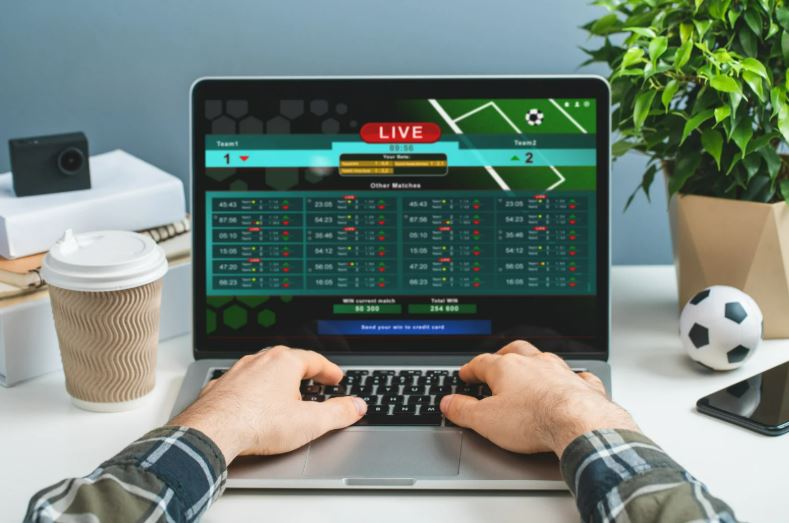Can Artificial Intelligence Truly Predict Football Matches?
Football is a game of skill, teamwork and sometimes surprise. For many, that unpredictability is part of the attraction.
With the rise of Artificial Intelligence (AI), some now ask whether technology can anticipate what will happen on the pitch before the referee blows the first whistle.
This blog looks at how AI may be used in football predictions, what kind of information it relies on, how it compares with the odds set by betting companies, and where its limits are. Understanding this can help you see AI predictions for what they are: educated estimates rather than certain answers.
How Does AI Predict Football Matches?

Artificial intelligence is a branch of computing where systems learn from data rather than following fixed instructions. In football, this means AI reviews results from large numbers of past games. It looks for any potential patterns that might influence what happens in a future match.
For example, a model may find that a club tends to perform better at home than away. Or it could detect that a team scores fewer goals when a key player is injured. These relationships are then used to create mathematical forecasts.
Instead of predicting a single outcome, AI presents probabilities. For instance, a model might suggest there is a higher chance of a home win compared with a draw or away victory. This is not a promise of what will happen, but a reflection of how the available data points lean at that time.
What Data Do AI Systems Use for Football Predictions?
The accuracy of an AI model depends on the information it is built upon. Reliable systems draw on a wide range of data sources, such as:
- Goals scored and conceded across recent matches
- Player fitness, suspensions and disciplinary records
- Home and away form
- Previous meetings between the teams
- Tactical formations and playing style
- Match location, including pitch conditions and weather
Some advanced systems may add further context, such as live injury updates or even crowd influence. Others may use automated feeds that gather information in real time. However, if the data is incomplete or outdated, the predictions will also be weaker.
Can AI Predictions Be More Accurate Than Bookmakers?

Betting companies, often called sportsbooks, also use detailed models to set their odds. These odds represent the price you receive if your chosen outcome occurs. For example, fractional odds of 2/1 mean you could receive £2 profit for every £1 staked if the outcome is successful.
Sportsbooks typically use similar statistical approaches to AI systems, but they also build in what is known as an overround. This is a small margin included in the odds to help secure a profit over time. It means that if you add up the implied probabilities of every outcome, the total is usually greater than 100%.
Because of this margin, even if an AI system is well designed, its results may not match up perfectly with the odds you see online. Sportsbooks also update their markets quickly when fresh information becomes available, such as late team news or weather changes.
The Limitations of AI in Predicting Football Results
AI has advanced football analysis, but there are important limits. Models work with data, and football does not always follow the patterns found in numbers.
Key factors that make football difficult to predict include:
- Unexpected events: Red cards, injuries during the match or refereeing decisions can change the flow instantly.
- Human elements: Motivation, confidence and team spirit are hard to measure.
- Late tactical changes: Managers may alter formations or strategies shortly before kick-off.
- External conditions: Strong winds, heavy rain or a poor-quality pitch can influence play.
Because of these factors, AI can only ever provide part of the picture. It helps organise known information, but cannot account for every moment of unpredictability.
AI Predict Football Match Technology in Sports Betting
AI is already embedded in the systems that keep betting markets moving. Sportsbooks use predictive models to estimate how likely different outcomes are, adjusting prices when new information comes in. For example, if a star striker is ruled out just before a game, the odds may shift to reflect the team’s reduced scoring potential.
In live betting, known as in-play betting, models update continuously. Real-time data feeds allow sportsbooks to adjust their odds minute by minute depending on the score, possession or momentum of the match.
Some websites and apps may also provide AI-based forecasts for individuals. These can range from simple percentage estimates, to platforms that display more complex statistical breakdowns. While they can be interesting to explore, it is important to remember that no tool can remove the element of chance.
Is It Safe to Rely on AI Predictions When Betting?
AI predictions should be seen as part of the wider picture, not the whole answer. Even highly detailed systems cannot guarantee outcomes in football. If you do decide to place a bet, it is helpful to remember:
- Sports-betting involves chance, so winnings are never certain.
- It is possible to lose as well as win, regardless of how confident a prediction looks.
- There is no strategy or system that can guarantee success.
For this reason, many people set personal limits on how much time or money they are comfortable spending. Taking breaks, sticking to affordable amounts and choosing licensed UK operators are all ways to help keep betting safer.
The Future of AI and Football Match Predictions
Artificial intelligence continues to grow in football. Some clubs already use it for training analysis, scouting and fitness management. This can lead to more detailed data, which can feed into prediction models.
Researchers are now looking into advanced methods such as deep learning, where systems may analyse player movements and passing patterns from match footage. These techniques could offer even deeper insights.
For betting markets, the effect is likely to be sharper updates and clearer probability estimates. But the unpredictable nature of football will remain. Goals scored in stoppage time, unexpected substitutions and the energy of a crowd cannot be fully captured by algorithms. This unpredictability is what keeps football entertaining and means that no prediction—AI-based or otherwise—can be certain.
*All values (Bet Levels, Maximum Wins etc.) mentioned in relation to these games are subject to change at any time. Game features mentioned may not be available in some jurisdictions.
**The information provided in this blog is intended for educational purposes and should not be construed as betting advice or a guarantee of success. Always gamble responsibly.





